Looking to switch broadband provider?
In this article, we’ve taken a look at 10 of the best broadband providers on the market in the UK in 2025, based on their speeds, value for money, customer service, WiFi router, and more.
Later on, we’ve also explained some key things to think about when searching for a new broadband deal.
Let’s begin.
Best broadband providers
Below, we’ve looked at ten of the best UK broadband providers to buy from in 2025.
1. Three 5G Broadband
Using Three Home Broadband, you connect to the internet using 5G, rather than with a copper or fibre broadband connection.
As a result, their broadband service is very easy to get up and running with. No engineer visit is needed – you just insert the provided SIM card into the router, plug it in, turn it on, and connect to WiFi.
The best thing about the Three 5G Hub though is the value for money it offers. Using this router, you can get download speeds of 300 Mbps, or even up to 500-700 Mbps from our testing, for normally less than £25 per month.
Apart from the fact that it’s using 5G, this broadband plan works in just the same way as any other fibre broadband deal. The router still creates a WiFi hotspot, and comes with LAN ports, and you get unlimited data included.
Also, since 5G performance can vary from street to street, there’s a 30-day money back guarantee, allowing you to test the router at your address and see what the speeds are like, before committing to the 24 month contract.
Just note, your latency will be a bit higher using a 5G internet service like this, when compared to fibre broadband. However, from our testing, the Three 5G Hub still performs well when gaming.
Pros
- One of the cheapest ways of getting home broadband in the UK.
- Offers ultrafast download speeds.
- Very easy to set up.
- Comes with a flexible return policy.
Cons
- Latency is higher than using fibre.
2. EE Broadband
There are a lot of things to like about EE Broadband.
For starters, they ship some of the best routers of any UK broadband provider at the moment.
Most of their plans come with their Smart Hub Plus WiFi 6 router, but you can even get a WiFi 7 router on their fastest plan – currently, they’re the only major UK ISP to offer a WiFi 7 compatible router, free of charge.
On this fastest plan, you can get speeds of up to 1.6 Gbps, making it one of the fastest widely available broadband deals in the UK. Although we would like to see EE offer a faster upload speed on this plan, it does come with a WiFi signal booster, which is nice.
EE’s customer service is also pretty good – their team is UK-based – and their monthly costs are quite reasonable, especially given the router they send you.
They have a 12 and 24 month contract available, giving you the choice of extra flexibility if you don’t want to be locked in for two years.
Also, if you’re an EE Mobile customer, there are extra benefits on offer, including data upgrades, and access to discounts on unlimited data SIMs, if you want to upgrade your family’s mobile plans.
Overall, EE is a great choice, especially if want a really good router with excellent WiFi performance, even in fairly large houses.
Pros
- Good customer service.
- Great WiFi routers.
- Choice of a 12 or 24 month contract.
- Fast download speeds.
- Range of benefits on offer for EE Mobile customers.
Cons
- Upload speeds could be better on their fastest plan.
3. Vodafone Broadband
Vodafone is another provider that offers a really good WiFi router.
If you buy Vodafone Pro 3 Broadband, you get their Ultra Hub router, which comes with WiFi 7, and a mesh WiFi booster.
Pro 3 Broadband is not cheap, but it also comes with a 4G broadband backup device, keeping you online if your fibre connection ever goes down.
If you choose one of Vodafone’s cheaper plans, their monthly costs are very competitive – cheaper than EE – and you still get a WiFi 6 router, which offers really good signal and speeds.
There are discounts on offer for Vodafone pay monthly mobile customers, and Vodafone offers ultrafast speeds – up to 900 Mbps, 1.6 Gbps, or even 2.2 Gbps, depending on where you live.
The only downside to Vodafone is, their Pro 3 plans can get a bit expensive, due to all the add-ons included.
Pros
- Offers blazing-fast speeds, up to 2.2 Gbps in some areas.
- Very low monthly costs on their basic tariffs.
- Discounts available for mobile customers.
- WiFi routers perform really well.
Cons
- Pro 3 plans are a bit expensive.
4. Virgin Media Broadband
Virgin Media has their own broadband network, completely separate from any other provider’s.
As a result, they offer the fastest speeds at many addresses – up to 1,130 Mbps in some areas, and they’re currently rolling out a 2 Gbps plan throughout their network, which comes with symmetrical download and upload speeds.
On their fastest plans, they ship their Hub 5 router, which offers good coverage and fast speeds, using WiFi 6. However, on their slower plans, they still ship a WiFi 5 router, which is a bit dated at this point.
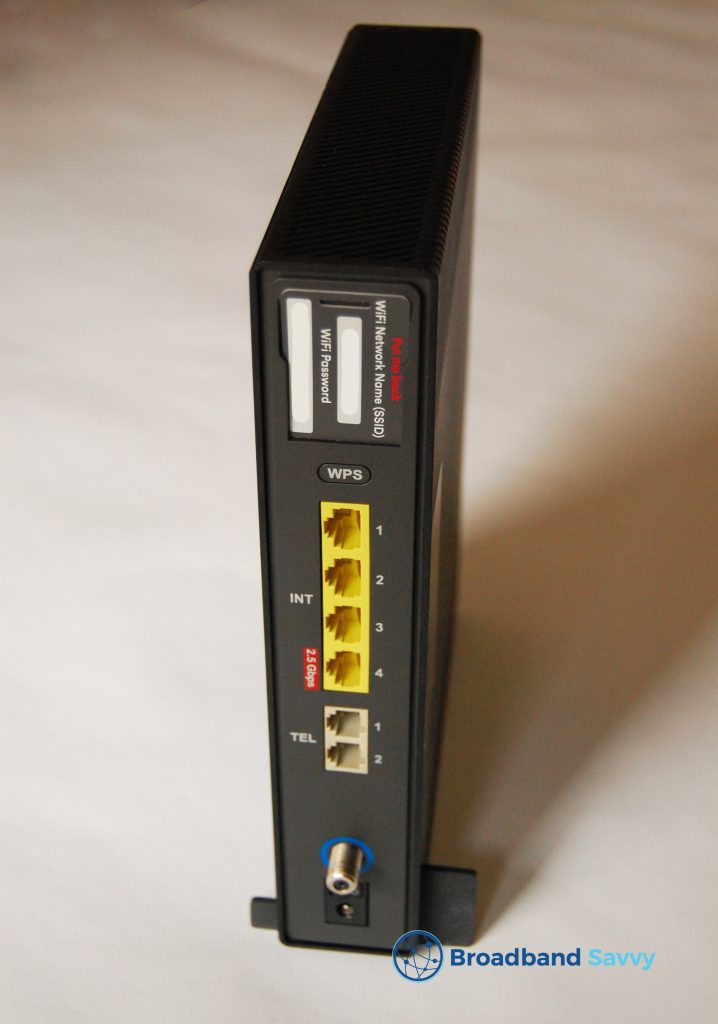
Despite this though, Virgin Media’s monthly costs are normally very competitive, especially on their superfast broadband deals.
They’re also a really good choice if you want broadband and cable TV – they have a huge range of channels available.
However, Virgin Media’s customer service isn’t quite as good as some other providers like BT and EE at the moment.
Pros
- Low monthly costs.
- Fast speeds.
- Great range of broadband and TV options.
Cons
- Customer support could be better.
5. BT Broadband
BT owns EE, and recently, they decided to move most of their broadband offerings across to the EE brand.
As a result, these days, BT Broadband is a bit basic. There are no TV bundles, no plans faster than 900 Mbps, and BT are still shipping their old WiFi 5 Smart Hub 2 router on all of their tariffs.
However, BT Broadband’s customer service is really good – they’re based in the UK, and offer some of the best support of any major provider.
Their monthly costs are often quite reasonable as well. Although they’re not the cheapest on the market, their deals often come with a reward card, which you can use just like a prepaid debit card, helping to make their offers much better value for money.
Overall, BT is still worth looking at if you want good customer service, as long as you don’t mind having a fairly basic broadband plan.
Pros
- Great customer service.
- Good value for money.
- Plans often come with a reward card.
Cons
- Quite basic.
6. Plusnet Broadband
Like EE, Plusnet is another broadband provider owned by BT.
All three providers use the same UK-based support team, and offer really good customer service.
The difference is, Plusnet is branded as more of a budget broadband provider. Their deals are very basic, only offering a download speed of up to 900 Mbps, and you have to commit to a 24 month contract.
However, because their deals are quite barebones, Plusnet normally has some of the lowest monthly costs on the market.
They don’t usually charge an upfront cost, and Plusnet sometimes also offers the same reward card you get as a new BT Broadband customer, making them even better value for money.
However, they also send new customers the same Smart Hub 2 that BT ships you, just rebranded white, which isn’t one of the best routers on the market at the moment.
Pros
- Low monthly costs.
- Great customer support.
- Often comes with a reward card.
Cons
- Deals are quite basic.
7. Community Fibre Broadband
If you live in London, Community Fibre Broadband is definitely worth checking out.
This provider offers download speeds of up to 3,000 Mbps, with symmetrical uploads, making them one of the fastest broadband providers in the UK.
Although they offer ultrafast speeds, they’re not extremely expensive. If you just want a 150 Mbps or 1 Gbps broadband plan, they’re often cheaper than buying the same download speed from a provider like BT or Sky.
Their customer service is also very good, and the router they ship you performs well.
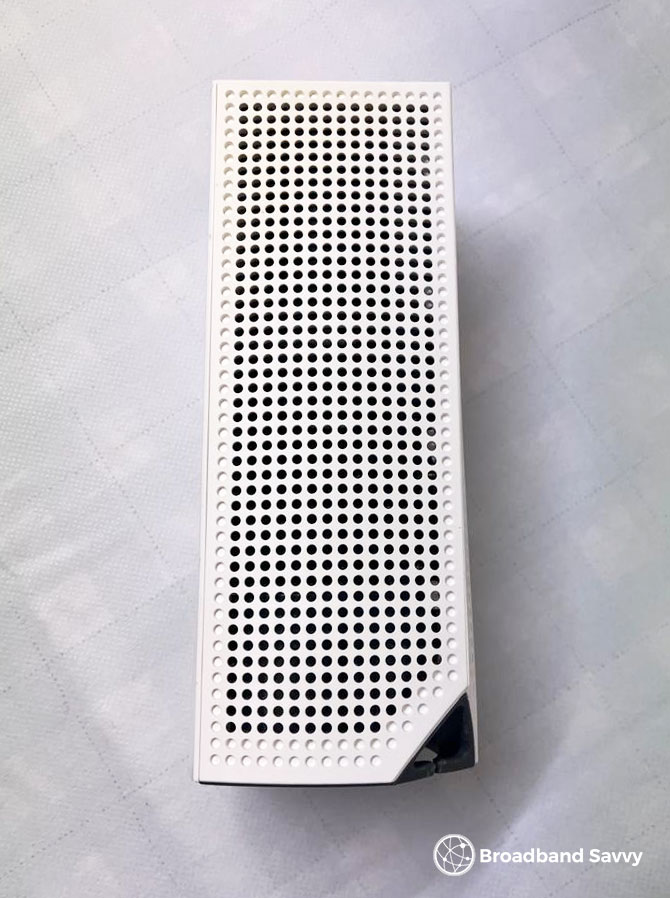
They offer the choice of a 12 or 24 month contract, and have no upfront fees on any of their deals.
The only downside to Community Fibre is their limited availability. You can only get their service in certain parts of Greater London at the moment.
But if you live in London, it’s definitely worth checking the Community Fibre website to see if you can get their service at your address.
Pros
- Extremely fast speeds.
- Good customer service.
- Low monthly fees, and zero upfront costs.
- Choice of a 12 or 24 month contract.
Cons
- Only available in London.
8. Hyperoptic Broadband
Hyperoptic is a relatively small, independent broadband provider, which specialises in offering full fibre broadband in urban and suburban areas around the UK.
They have good coverage in London, Bristol, Cardiff, Southampton, Birmingham, Cambridge, Colchester, Peterborough, Nottingham, Liverpool, Manchester, Sheffield, Leeds, Preston, York, Newcastle, Glasgow, Edinburgh, Dundee, and Aberdeen, among other towns and cities.
Their network offers symmetrical fibre broadband, with download and upload speeds of up to 900 Mbps.
They’re not the cheapest altnet on the market, but their prices are often cheaper than the likes of EE, or Virgin Media. Plus, they offer the choice of a 24 month, 12 month, or monthly rolling contract – making them one of the only broadband providers in the UK to offer 30-day deals at the moment.
Another advantage of Hyperoptic over most bigger providers is their customer service. They’re based in the UK, and are very responsive if you have any issues.
Pros
- Offers fast, symmetrical speeds.
- Low monthly costs compared to bigger providers.
- Good customer service.
Cons
- Limited availability.
9. Sky Broadband
Sky Broadband isn’t the cheapest provider on the market, nor do they have the fastest download speeds.
While other premium broadband providers like EE and Vodafone now offer gigabit or even two-gigabit speeds, Sky is still limited to a maximum of just 900 Mbps on their fastest tariff.
Also, you have to pay more to get Sky’s new Max Hub WiFi 6 router – it’s an optional extra, on most plans.
However, Sky is almost always your best choice if you want a broadband and landline connection. They include a home phone service with all of their plans, and have a range of calling bundles you can choose to add on, including one with evening and weekend calls, and an anytime calling option.
Sky is also definitely worth looking at if you want broadband and cable TV. Their range of TV boxes and smart TV options, such as Sky Glass and Sky Q, are generally the best on the market, assuming you want a good variety of channels, and the ability to record and rewind live TV.
And finally, Sky Broadband has some of the best customer service of any British broadband provider. They consistently rank lowest or second lowest for numbers of customer complaints, according to Ofcom data.
Pros
- Excellent landline calling options.
- Excellent range of cable TV channels and bundles.
- Great customer service.
Cons
- Can be expensive, especially if you opt for their better router.
10. YouFibre
YouFibre is the fastest broadband provider in the UK at the moment, offering download speeds of up to 7,000 Mbps on their fastest plan – which is so fast it might be more speed than most of your devices can actually take advantage of.
Their fastest plans are expensive, but if you only need a 150-1,500 Mbps broadband deal, their monthly costs become much more competitive.
YouFibre has good customer service, and no mid-contract price rises, unlike many of the bigger providers on the market.
They also offer a no-contract option if you don’t want to commit for 18 months, which is great.
However, their coverage is limited to just certain parts of the UK. They have fewer addresses covered than Hyperoptic, but their network is constantly expanding.
Pros
- Fastest widely-available broadband in the UK.
- Good customer service.
- Low monthly costs.
- Option of a month-to-month plan.
Cons
- Limited coverage.
- 7 Gbps plan is very expensive.
How to choose the right broadband provider
In this section, we’ve explained some key things to consider when choosing a broadband provider, to help you find the right plan for your household’s needs.
UK broadband networks explained
In the UK, there are a number of different broadband networks available in different parts of the country.
Depending on where you live, there might be a huge difference in the range of providers available at your address. That’s why we made our broadband postcode checker.
There are three main networks, or types of networks, available in certain areas:
- Openreach – available at nearly every address in the UK, and used by most providers, including BT, EE, TalkTalk, Sky, Vodafone, Plusnet, and many more. Offers download speeds of up to either 900 Mbps or 1.6 Gbps at most addresses.
- Virgin Media – available at approximately 51% of UK addresses, offers speeds of up to 1,130 Mbps or 2,000 Mbps, depending on the address.
- Altnets – small, independent fibre broadband networks, available in certain regions or cities. Normally, these alternative networks offer ultrafast fibre speeds of at least 1,000 Mbps. Some offer speeds of up to 3,000 Mbps (3 Gbps) or even higher.
Some of the biggest altnets include:
- CityFibre – sold by Vodafone, among other smaller providers
- Community Fibre – available in London
- Fibrus (Northern Ireland)
- YouFibre
- Hyperoptic
- Gigaclear
Different networks can have massive variations in cost and performance. Often, altnets offer the cheapest prices, and the fastest speeds – sometimes they offer symmetrical broadband, meaning your download and upload speeds are the same, which isn’t available with Openreach full fibre.
It’s a good idea to do some research to find out which altnets are available at your address, and then compare their prices to Openreach providers like EE, as well as Virgin Media, if you can get it.
At a minimum, we’d recommend looking at the Vodafone website to check for CityFibre coverage – if it is available, you’ll be offered a maximum speed of 2.2 Gbps instead of 900 Mbps or 1.6 Gbps. In London, Community Fibre is worth checking, and Hyperoptic is also good to look at in other larger cities.
What broadband speed do I need?
While fast broadband is great to have, it can be very expensive, especially if you want ultrafast speeds of 300 Mbps or more.
Therefore, if you’re on a budget, you might be wondering, what internet speed do you need for your household?
You can use our bandwidth needs calculator to help answer this question, given how many people live at home, and how you use the internet.
As a general rule:
- For singles and couples, a 50 Mbps download speed should be plenty, assuming you don’t often need to download or upload large files.
- If you have three people regularly online, you might want 100-150 Mbps, to ensure everyone can use the internet at the same time with no buffering or slowdowns. Even if you often have guests, this will still be plenty of bandwidth for most households.
- If you have four or more people regularly online, 200-300 Mbps will be plenty of download speed.
Ultrafast fibre broadband with download speeds of 300 Mbps or more is a luxury, in most cases. It’s only really necessary if:
- You often download large files (2-3GB or more) from the internet, and want to make this as fast as possible.
- You often make large uploads, and want to maximise your upload speed. On most broadband plans, your uploads will be a lot slower than your downloads, so to get a relatively fast upload speed (40-50 Mbps or so) you might need to pay more for fast downloads (400-500 Mbps or so). But most families don’t upload anywhere near as much data as they download.
- You work from home, and want to make things as efficient as possible, especially uploading/downloading files, performing software updates, and so on. Having 200-300 Mbps or more also ensures you can work efficiently even when other people are online.
Which broadband provider has the best customer service?
Each quarter, Ofcom releases a report where they look at the number of customer complaints and overall customer satisfaction for each major broadband provider in the UK.
Over the past year or so, the following providers have generally topped the rankings:
- Sky
- Plusnet
- BT
While these providers generally performed worst:
- Virgin Media
- NOW Broadband
BT group broadband providers (BT, Plusnet, and EE) generally offer good customer service, in our experience.
They all use the same UK-based contact centre, and are helpful, and quick to answer the phone, from our time testing BT and Plusnet’s full fibre plans.
It’s worth mentioning, Ofcom’s reports don’t look at altnets, like Community Fibre, YouFibre, or Hyperoptic, because they’re not big enough to be assessed just yet.
Often, altnets can provide really good customer service, because they’re small companies that can pay more attention to each individual customer.
This isn’t always the case though, so it pays to check their customer reviews on websites like Trustpilot before buying.
Which is the fastest broadband provider in the UK?
The fastest consumer broadband providers in the UK are:
- YouFibre – up to 7,000 Mbps, although coverage is limited to certain regions – click here to check if you can get their service
- Community Fibre – up to 3,000 Mbps
- Vodafone (at City Fibre addresses) – up to 2,200 Mbps
- Virgin Media (at certain addresses) – up to 2,000 Mbps
- Openreach (EE, Vodafone, and some others) – up to 1,600 Mbps
Which broadband provider has the best WiFi router?
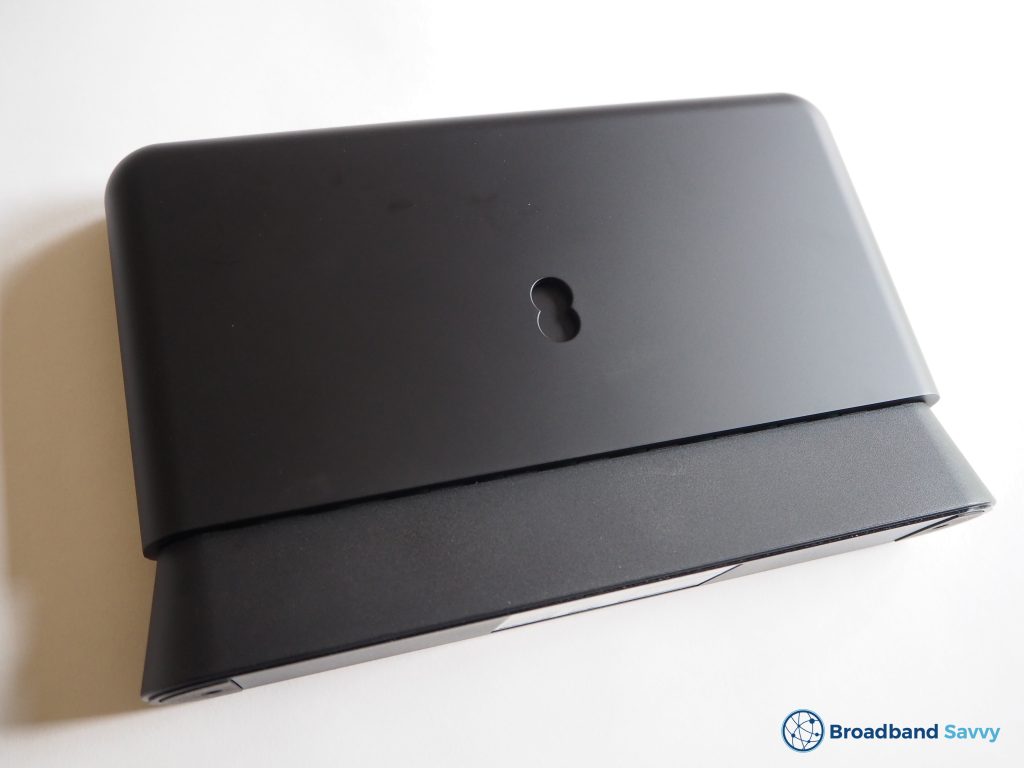
When you switch broadband providers, your new ISP will send you a WiFi router in the mail, for you to use with their service.
It really pays to look closely at the router you’ll receive when switching broadband providers, because the quality of the routers on offer can vary massively from provider to provider.
- Modern routers come with WiFi 6, WiFi 6E, or WiFi 7, while some providers still ship you an older WiFi 5 router. WiFi 5 is an older WiFi standard that doesn’t offer as good speeds or signal, meaning you might run into issues if you have a larger house. If you have gigabit broadband, WiFi 7 also helps you to get the most from your connection.
- Some routers come with four LAN ports, while others only have two or three. Also, if you get an ultrafast fibre broadband plan with a download speed of more than 1,000 Mbps, make sure to check the speeds on offer from the Ethernet ports. You don’t want to be limited to gigabit LAN speeds if your connection offers 2,000 Mbps or more. Most LAN ports only offer gigabit speeds, but some routers come with at least one 2.5 Gb Ethernet port.
- Some routers are more locked down than others. For example, most BT, EE, and Plusnet routers don’t allow you to set custom DNS on a router level. If you want to do things like set up DHCP or use your router in bridge mode, this is important to consider.
At the moment, some of the best routers on the market include:
- The EE Smart Hub Pro, offered on their 1.6 Gbps plan, which comes with WiFi 7, and a 2.5 Gb LAN port. Their Smart Hub Plus WiFi 6 router, offered on their other deals, also performs well from our testing.
- The Vodafone Ultra Hub, available on their Pro 3 Broadband plans, comes with WiFi 6E, and Vodafone also includes a mesh WiFi signal booster as well for improved signal at long distance.
- The Virgin Media Hub 5, which comes with WiFi 6, although it’s only available on Virgin Media’s fastest plans.
Will my monthly bill rise mid-contract?
Most broadband providers in the UK increase their prices every year, even while you’re in contract.
Until 2024, this annual price rise was often linked to the rate of inflation. It was typical to see language along the lines of “monthly cost will increase by 3.9% plus the rate of inflation, measured by the Consumer Price Index (CPI), each April”.
However, Ofcom has issued guidance on this practice, and now, most broadband providers have a set annual increase of their plan’s monthly cost, such as £3, baked into the contract. Although, Virgin Media still increases prices by the inflation rate each year.
There are some providers that don’t have mid-contract price rises, but it is relatively rare. Some altnets don’t have these price increases for example.
How to save money on broadband
If you’re on a budget, here are some ways you can save money when buying broadband.
- Only pay for the download speed you really need. As we discussed above, ultrafast fibre broadband can be very expensive. In most cases, it might not be necessary to pay for a download speed of more than 100 Mbps.
- Make sure to research all available providers. Often, smaller broadband providers offer the best prices. It pays to check and see if you have any altnets available at your address you can buy broadband from.
- Avoid buying any add-ons, if possible. Cable TV, landline calling minutes, and mesh WiFi extras can add a huge amount onto your monthly cost. If possible, use a more flexible TV streaming service when you want to watch certain shows or sporting events, use your mobile instead of your landline, and buy a mesh WiFi kit as a one-off purchase, instead of adding it onto your broadband subscription.
- Avoid being with a broadband provider out of contract. Your provider should let you know when your contract is expiring, however, it’s good to set a reminder. When this happens, you want to switch provider or sign a new contract immediately, otherwise your monthly cost will massively increase.
- Consider using 5G broadband. At many addresses in the UK, the Three 5G Hub is the cheapest way of getting online – normally, it costs less than £25 per month, with no upfront fees.
- Avoid short-term contracts. Month to month or 12 month broadband plans are often a lot more expensive than 24 month contracts.
- Consider buying broadband from your phone company. Some broadband providers also offer mobile phone and SIM deals, and then give you a discount or bonus data when you become a broadband customer. If you have a Vodafone pay monthly mobile plan for example, you can normally get a few pounds a month knocked off your broadband bill.
- Look at social tariffs. If you’re on certain benefits payments, such as Universal Credit, you may be eligible to access a cheaper, more flexible broadband plan. Learn more about this with our guide to saving money on broadband.
What happens when you switch broadband provider?
Recently, one-touch broadband switching has been launched in the UK.
This means that, no matter which two providers you’re switching between, you can just place the order on the new provider’s website, most of the time. They’ll contact your old provider for you, and handle the cancellation process on your behalf.
After you place the order, you’ll need to book an engineer visit with your provider if:
- You’re switching full fibre broadband for the first time on the same network (for example upgrading from Openreach 36 Mbps to 900 Mbps).
- You’re switching to a new broadband network for the first time at your address.
Normally, you can book in the engineer visit after placing the order, and they’ll be able to come within 1-2 weeks or so.
The technician will visit and set up everything for you, including the router, and you’ll be ready to get online.
If an engineer visit isn’t necessary, you’ll normally receive the router in the mail, along with instructions you can use to set it up yourself.
Can I get a home phone connection?
Most broadband plans sold in the UK these days don’t come with a landline phone connection – you no longer need to pay for line rental to get broadband at most addresses.
Some providers give you the option to include a landline service, for an extra monthly fee. However, if you want an inclusive calling minutes plan, this can be very expensive, depending on the provider you choose.
Sky and Virgin Media are good choices when it comes to broadband and calls. They both offer broadband deals with a landline service included, and have a good range of inclusive calling options, including anytime calls.
How does broadband and TV work?
If you want a broadband and TV bundle, including cable channels like Sky Sports, EE, Sky, and Virgin Media are your best options.
These days, your TV channels will be delivered over your broadband connection, rather than via satellite dish, making the installation process much easier.
You’ll still get a set-top box, which you can use to record live TV. Normally, you have to enter into a long-term contract for this.
However, you can often switch between different packs of TV channels on a month to month basis, depending on the provider you choose.
Does broadband come with unlimited downloads?
Currently, all fibre broadband plans sold in the UK come with unlimited data, meaning you don’t need to worry about monthly usage limits.
Mobile broadband plans sometimes come with a data limit, but this isn’t the case with the Three 5G Hub.
Broadband considerations as a gamer
As a gamer, the most important thing when it comes to your broadband connection is having a low latency.
Latency, also known as ping, is a measure of the responsiveness of your connection when handling small packets of data.
You want a low latency – if it gets too high, you’ll experience lag when playing ping-sensitive games like Fortnite, Call of Duty, Rocket League, and Counter Strike.
Fortunately, most fibre broadband networks in the UK offer a consistent latency of around 10ms, which is perfect for online gaming.
You just need to ensure that you have enough bandwidth on your connection, if other people often get online while you’re playing.
If your bandwidth is used up by other people online when you’re gaming, your ping will skyrocket, so it’s important to have enough download speed given the number of people at home.
Having a high download speed as a gamer is also helpful for downloading new games, or game updates – these downloads can be quite big, depending on the games that you like to play.
Fibre broadband vs mobile broadband
Most UK households get online with fibre broadband. However, many people are switching to 4G and 5G internet solutions, because they can be easier to set up, and can offer better value for money.
Here are the main differences between fixed-line and mobile broadband.
- 4G/5G routers are easier to get started with. You just need to insert the SIM card, plug the router in, and turn it on – no engineer visit necessary.
- You can pick up your mobile broadband router and use it anywhere with signal in the UK, with Three at least. Meaning, you can get online in a caravan, or when on holiday.
- Mobile broadband plans sometimes come with a data limit, which isn’t the case with fibre broadband.
- Your latency will be higher when using 4G or 5G compared to fibre broadband.
- Your speeds will be less consistent when using 4G or 5G compared to fibre broadband.
Conclusion
You’ve reached the end of our broadband buyer’s guide.
If you have any questions about choosing a new ISP, leave us a comment below, and we’ll respond as soon as we can.
About the author

Tyler is the co-founder of Broadband Savvy. He has been helping people improve their broadband connectivity since 2018 by writing about fibre broadband and mobile broadband providers, as well as creating tutorials to help people improve their broadband speeds and Wi-Fi signal.
Tyler is responsible for the majority of buyer’s guides and broadband reviews published on Broadband Savvy. He has a wealth of experience testing and reviewing different broadband tariffs, including fibre internet plans, as well as 4G and 5G broadband deals. He is responsible for testing and evaluating Wi-Fi routers, performing speed and latency tests, and comparing the value for money of different broadband providers on the market in the UK.
Before co-founding Broadband Savvy, Tyler had a long history of tinkering with computers. He built his first PC at the age of 12, and since then, he’s become obsessed with all things networking and internet-related. He’s a massive gamer, loves Rocket League, and also plays Sunday League football.



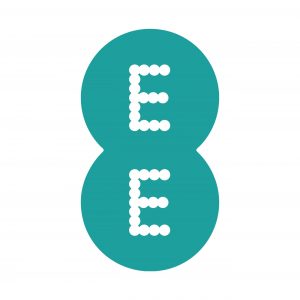

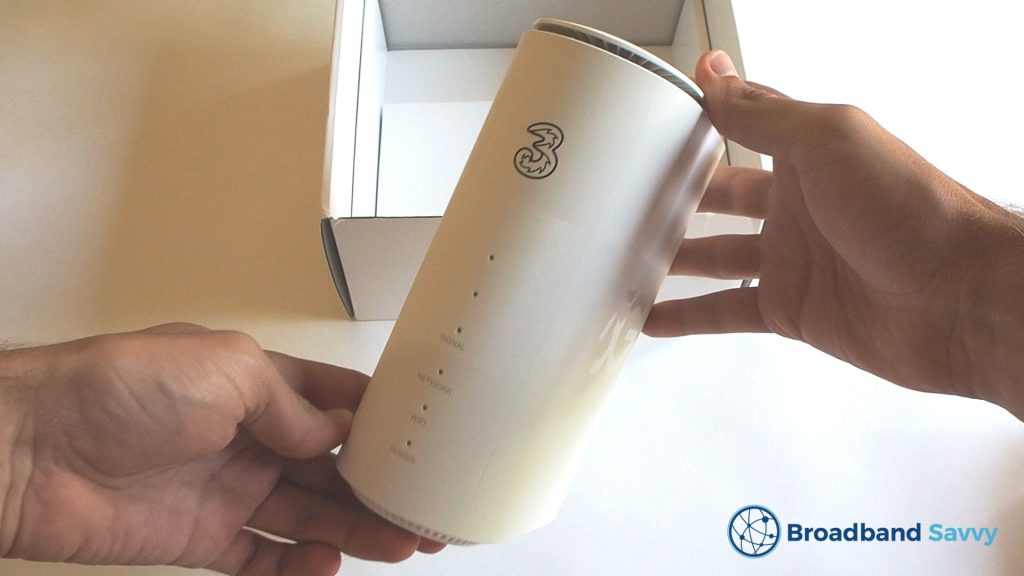
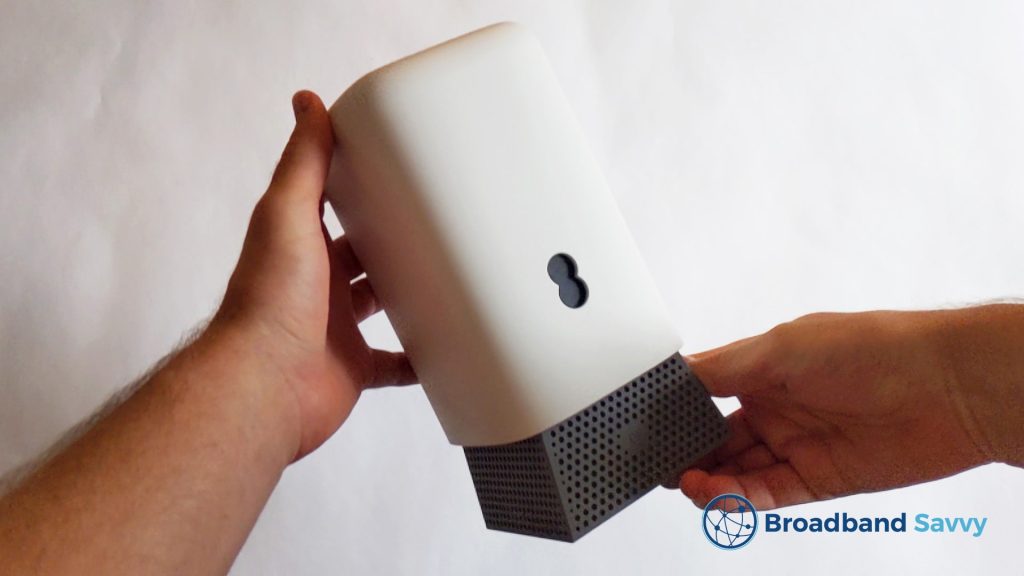
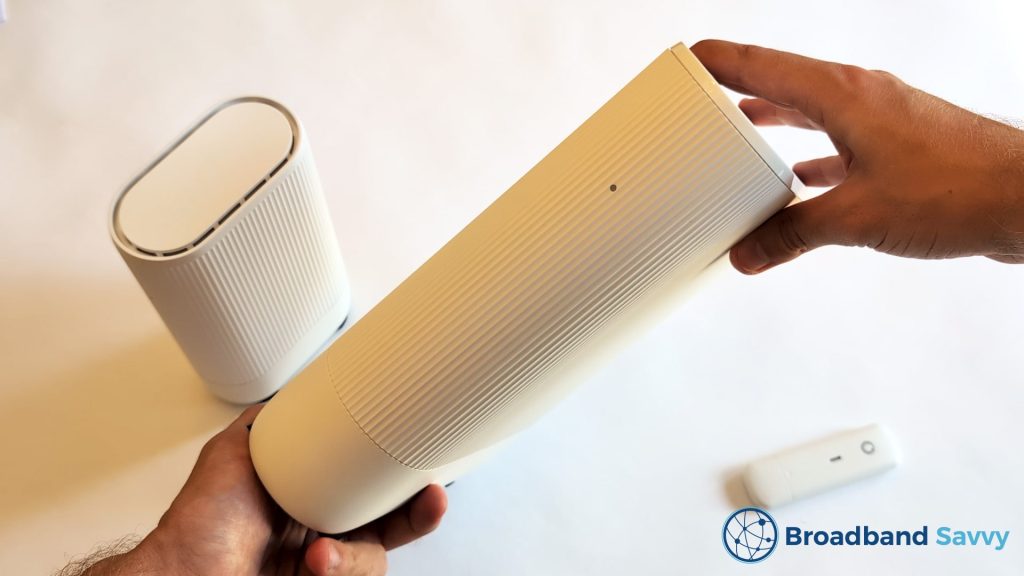

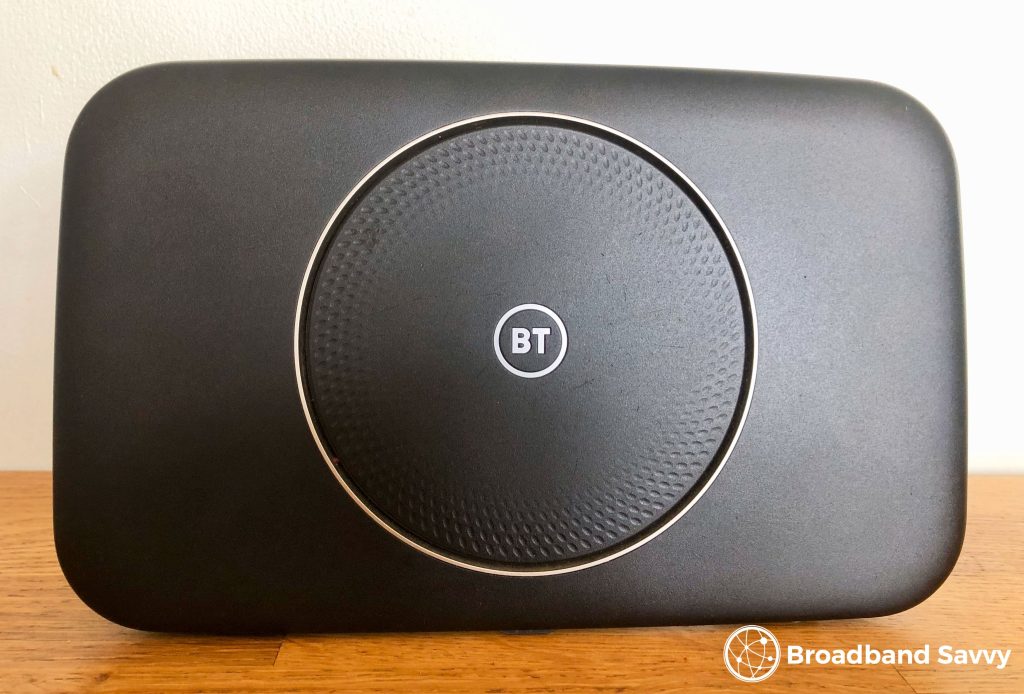
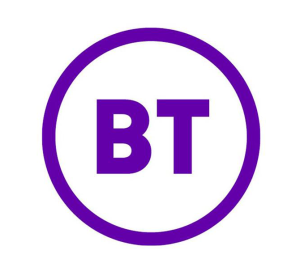
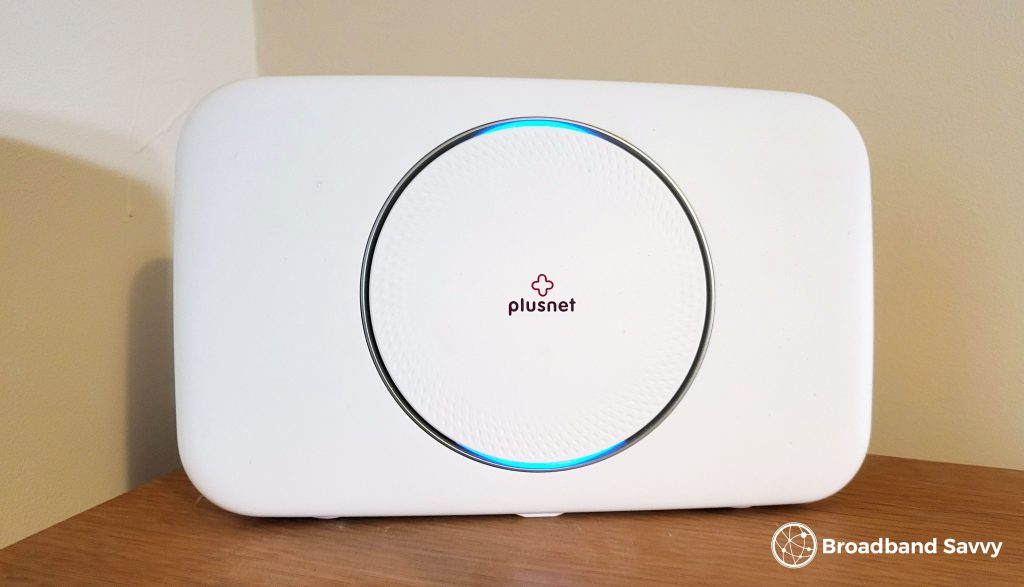

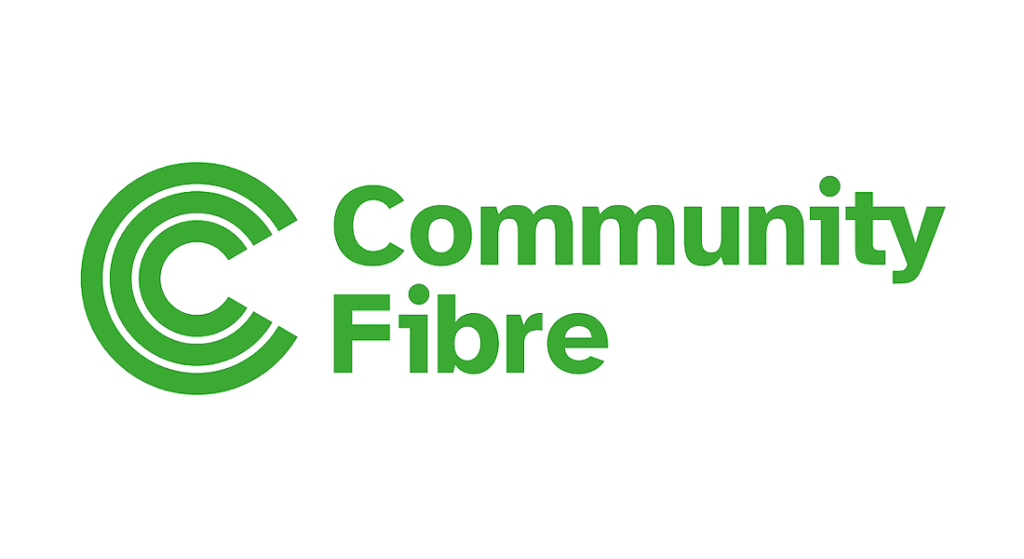

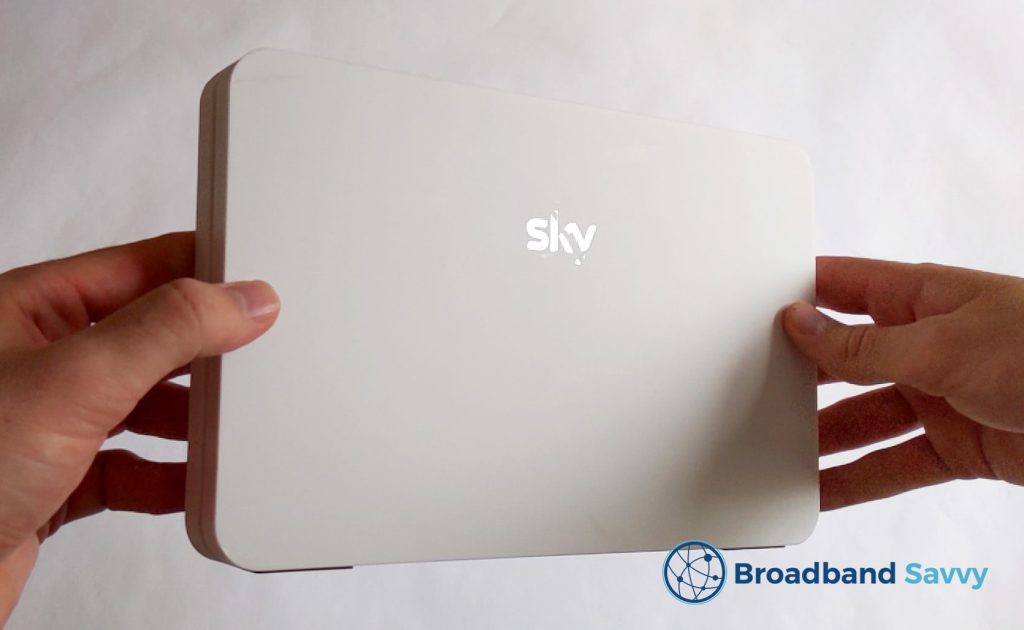
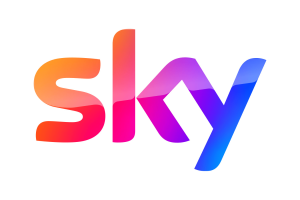


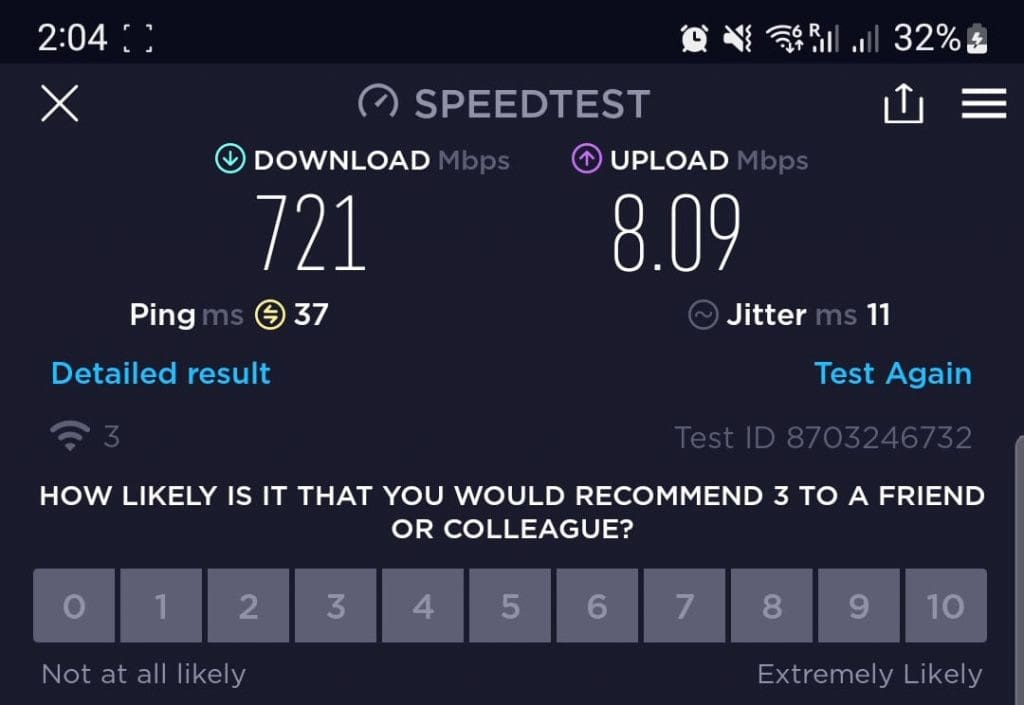

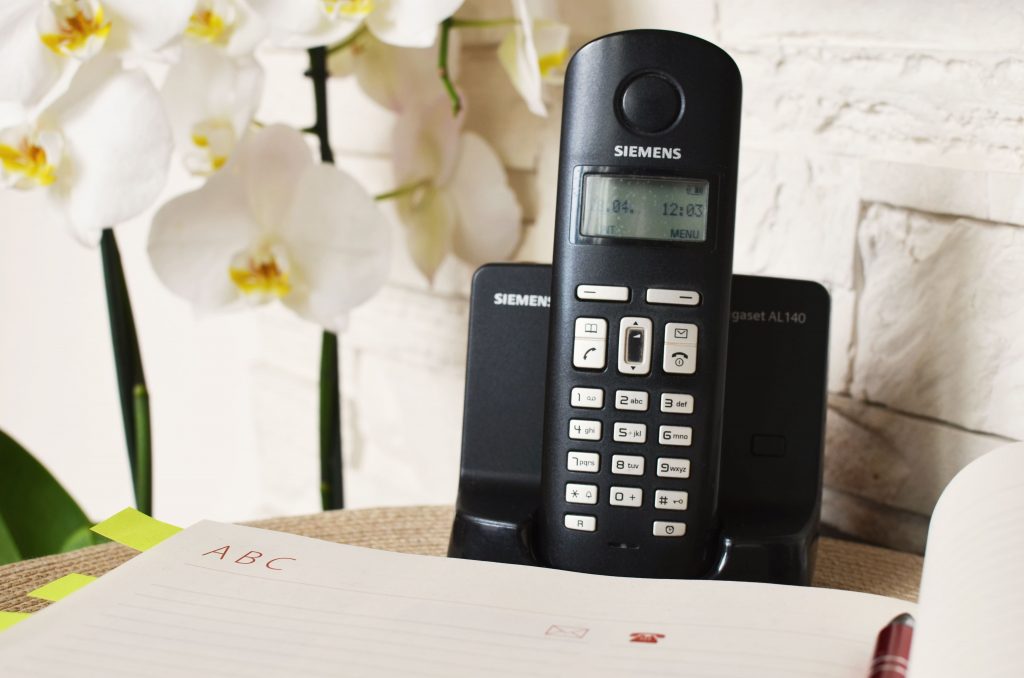






A great independent look at all the providers I can get, as there is so much mis information out there, am at present with virgin, who unless like Martin Lewis says you tell them you are not happy with the price they are charging, will screw you for the prices they charge, it is nice to know that there are new companies coming on to put the Big boy’s under pressure to bring down the costs they charge, thank you so much for an excellent web site giving so much information Regards Roy
Hi Roy,
Thanks for the kind words. Please feel free to reach out if we can be of any assistance as you choose a new provider.
Thanks